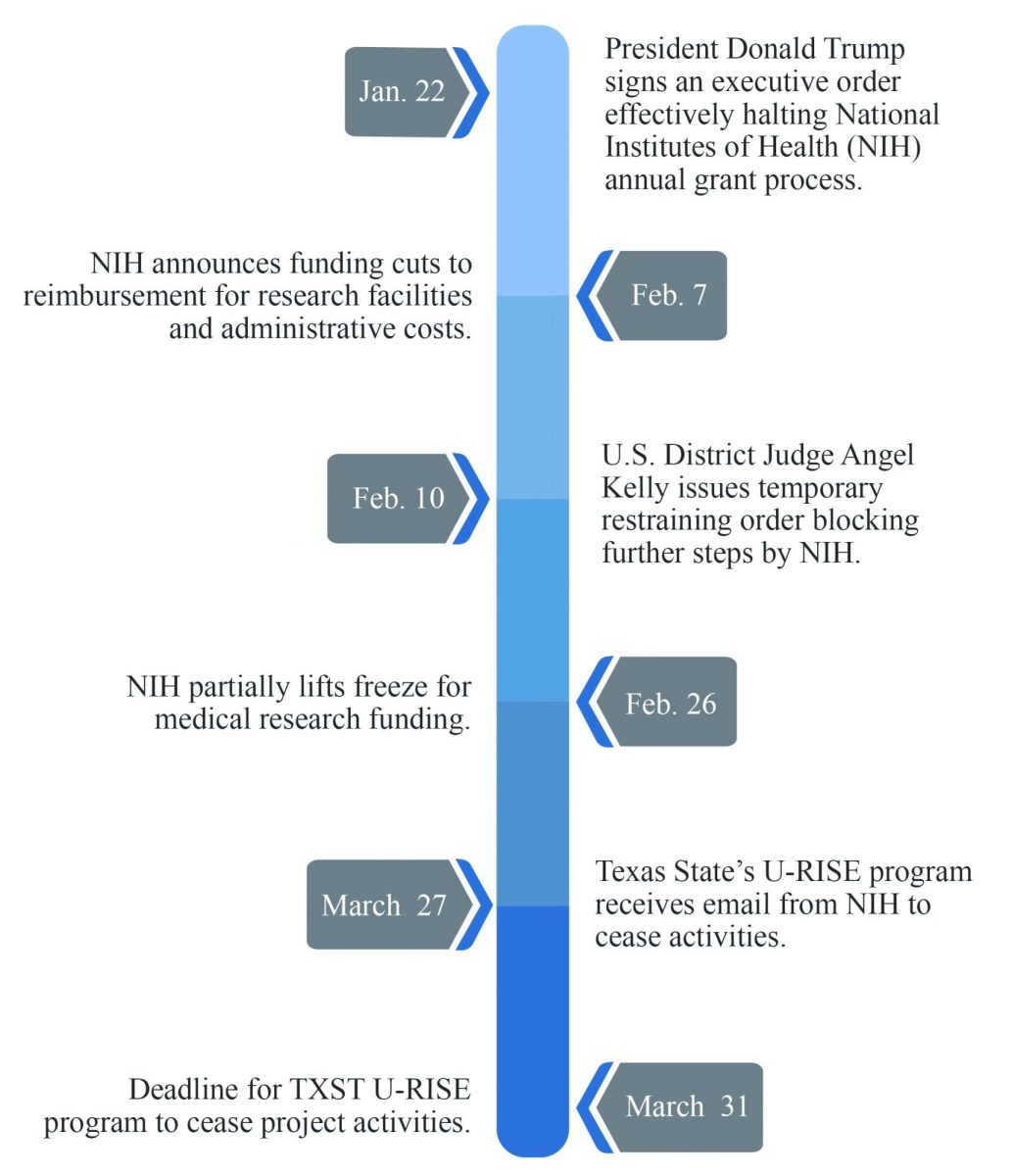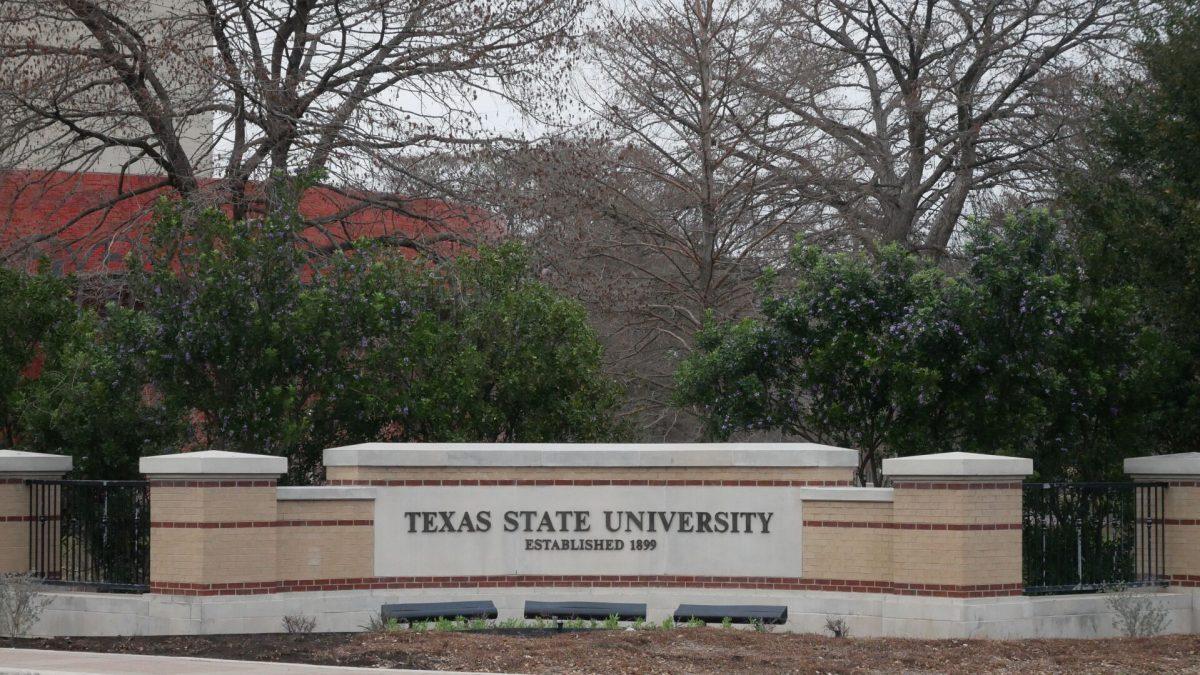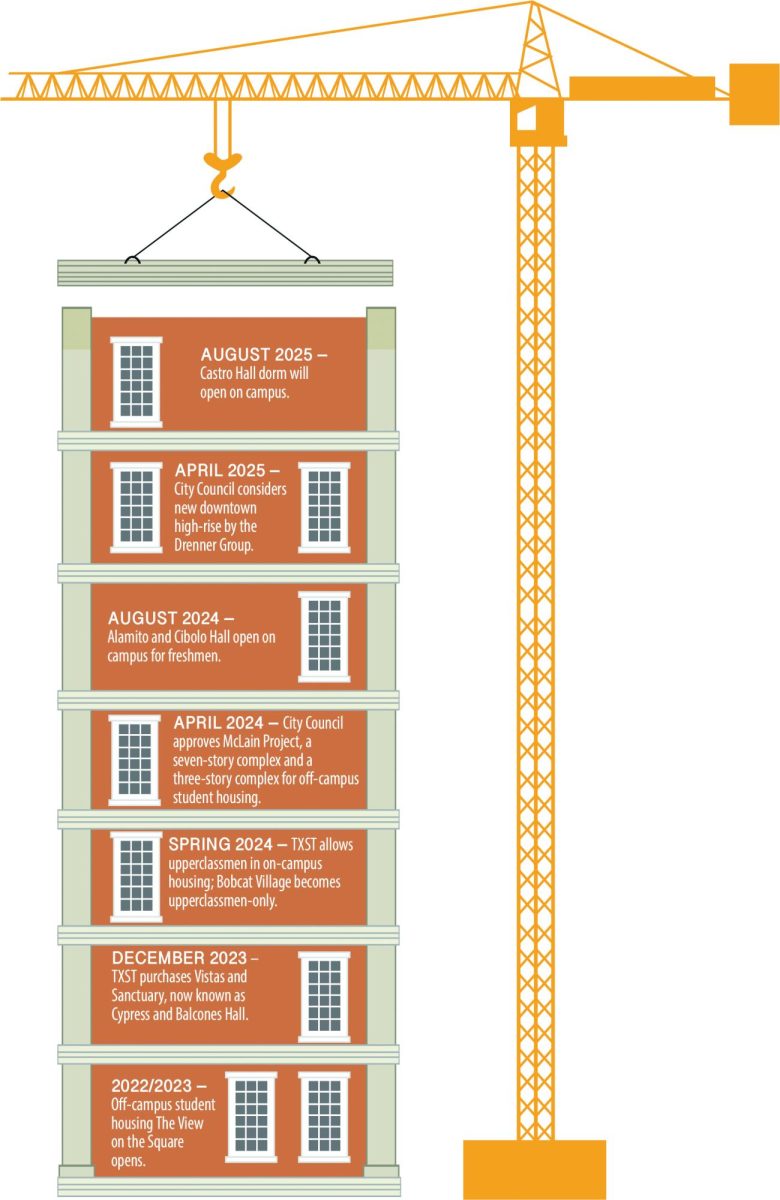The National Institutes of Health (NIH) terminated the Texas State U-RISE program and the Texas Doctoral Bridge program following funding cuts.
The NIH, which is funded by the U.S. Department of Health and Human Services, is the nation’s primary federal agency for biomedical and public health research.
On Feb. 7, the NIH announced changes to its grant policies, significantly reducing funding toward research institutions and universities.
“For any new grant issued, and for all existing grants to IHEs [Institutions of Higher Education]retroactive to the date of issuance of this Supplemental Guidance, award recipients are subject to a 15% indirect cost rate,” the NIH stated in the Feb. 7 statement. “This rate will allow grant recipients a reasonable and realistic recovery of indirect costs while helping NIH ensure that grant funds are, to the maximum extent possible, spent on furthering its mission.”
The policy changes followed restrictions imposed by the Trump administration on the NIH, which included a halt on considering new grant applications, the cancellation of grant review meetings and the suspension of communication between programs.
TXST U-RISE, an NIH-funded parent training grant program, supports research training for graduate students and prepares undergraduate students interested in becoming biomedical researchers.
Karen Lewis, project director of the Texas State U-RISE program, said the initiative equips students with broad biomedical research training, covering everything from physics and chemistry to the life sciences.
“The idea behind the U-RISE program is that we want to help students prepare for PhD programs,” Lewis said. “While you can get a job with a bachelor’s in sociology through chemistry, you can get a job in the private sector to kind of be accredited to be a leader in the field.”
On March 27, Lewis received an email from the NIH instructing that all U-RISE project activities must stop by March 31 and that budgets must be finalized by April 4.
The notice was sent instead of the expected Notice of Award for the program’s fifth-year grant cycle. The day after the award notification had been anticipated, U-RISE scholars and research mentors were informed that the program was being terminated.
Under the U-RISE program, students are supported in facilitating their research in labs through 60% of tuition and fees remission and monthly living costs provided as part of the congressionally mandated program.
According to Lewis, students receive about $12,000 a year to help with living costs and reduce the financial pressures students may experience.
“These training programs exist to recognize and defray that cost so that people can train in labs and can develop their scientific skills and make advances to really build this pipeline of the next generation of biomedical researchers in the country,” Lewis said.
Since the initial NIH freeze, Lewis said there has been no communication between U-RISE and the program officers at NIH.
“We’ve spent four years building this program and when the U-RISE program started it was a slow burn because we launched in the shadow of the pandemic,” Lewis said. “Within the last year, we’ve gotten traction in the Texas STEM community and students know about the program now; they’re applying in the dozens.”
Efforts to support U-RISE scholars during this transition are underway. The TXST Division of Research has committed to covering the April and May stipends, ensuring scholars continue to receive their funding. Additionally, reimbursements for the program’s planned travel events in November 2025 are currently being processed.
However, the program’s official weekly development seminars and workshops have been postponed.
“While NIH funding for the [U-RISE] program ended as of April 1, Texas State remains committed to supporting our students. We will continue mentoring those currently enrolled through the end of the semester and are monitoring developments related to future NIH funding,” Texas State wrote in a statement to The Star.
On April 2, the Texas Doctoral Bridge Program also received an email from the NIH announcing the program’s termination. However, the message stated that funds from active awards could continue to be drawn per the NIH Grants Policy Statement.
In partnership with UT Health San Antonio, the 12-year-long Texas Doctoral Bridge Program helped provide master’s level students with academic preparation to transition into research-intensive PhD programs in biomedical fields.
The program usually provides an annual stipend of $30,000-45,000 covering tuition and fees for students.
Lewis said the cuts will hit both the students who need the support the most and Texas State as a whole.
“This is actively harming individual humans and it’s going to interfere with and very likely affect the next five years of their [U-RISE Scholars] life as they decide what to do and how to do it post-graduation,” Lewis said.





















